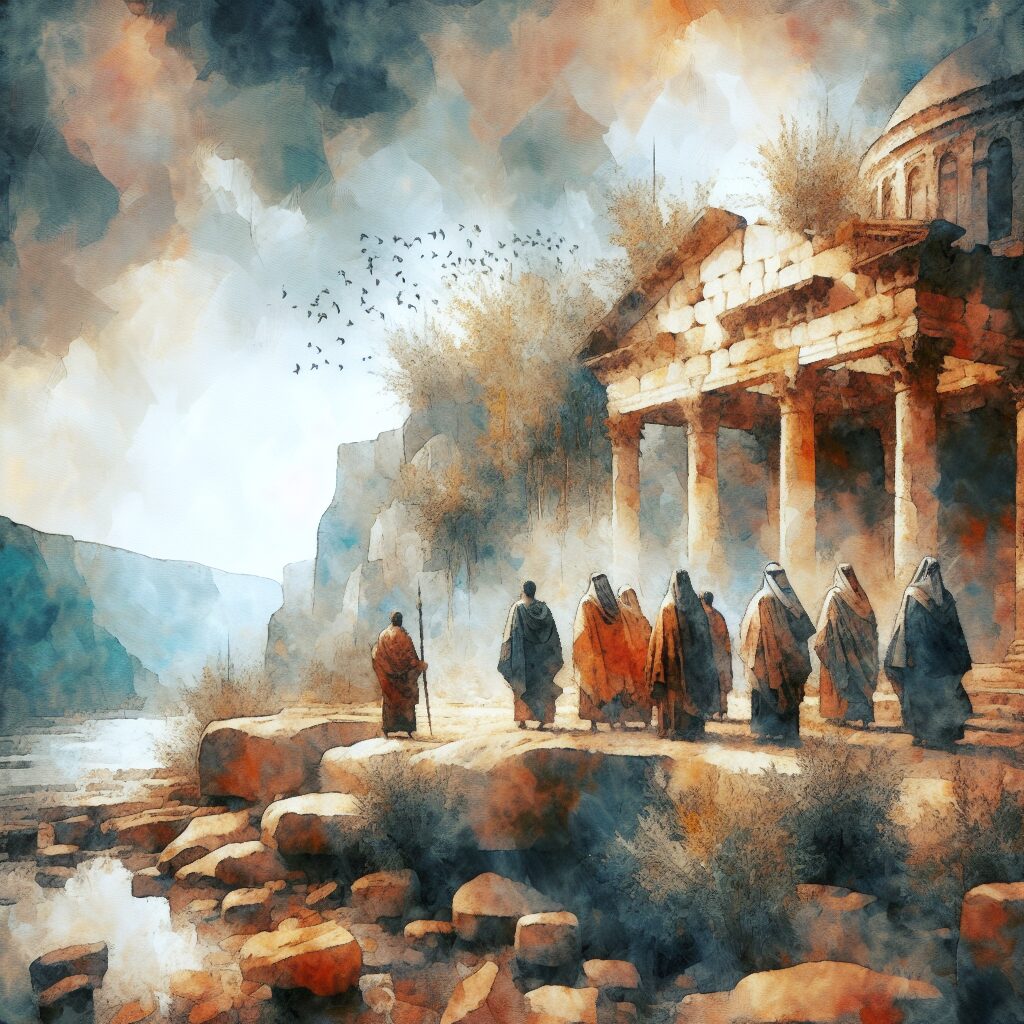Daily Bible Affirmation for October 26, 2025 – 2 Chronicles 20:22

Bible Verse
“As they began to sing and praise, the Lord set ambushes against the men of Ammon and Moab and Mount Seir who were invading Judah, and they were defeated.” – 2 Chronicles 20:22
Reflection
This powerful verse from 2 Chronicles tells a remarkable story about the transformative power of praise in the face of adversity. Here we find the people of Judah standing at a moment of profound vulnerability. They were faced with overwhelming opposition from surrounding nations, seemingly insurmountable in their strength and numbers. Yet, in this pivotal moment, they chose a surprising and divinely guided strategy: singing and praising God.
The context surrounding this verse reveals an essential truth about the nature of faith. It is often when we feel surrounded by challenges that seem too great to conquer on our own that faith becomes our strongest ally. King Jehoshaphat and the people called out to God in their distress, demonstrating the humility to recognize their need for divine intervention. Instead of arming themselves with weapons or devising elaborate plans, they armed themselves with songs of praise. This act of worship was a profound declaration of trust in God’s omnipotence and goodness.
In our daily lives, praise can similarly transform our struggles. Whether we face issues in personal relationships, health, or career, beginning with a heart of praise acknowledges the sovereignty of God over our situations. It redirects our focus from the magnitude of our problems to the limitless power and grace of God. As Judah discovered, praise creates a spiritual atmosphere where God can move mightily. It is in this sacred, audacious faith—expressed through praise—that defeats are turned into victories.
Moreover, this scripture encourages inclusivity in our hearts and actions. The people of Judah did not battle alone; they came together as a community, united in purpose and faith. This aspect of collective praise is a beautiful reminder of the strength found in community, inviting us to support and lift one another up in times of need. As we read this passage, we are called to build communities rooted in compassion and encouragement, fostering environments where everyone’s voice in praise contributes to collective triumph.
Through this verse, God shows us that His solutions are often beyond our understanding and approaches. The seemingly simple act of praising can yield unexpected and miraculous results. Embracing this truth encourages us to trust in God’s timing and methods, growing in our relationship with Him through every season of challenge. As we cultivate awareness of His presence in our lives, we discover that God is always working for our good, even when our human logic cannot grasp His methods.
Closing Thought
As we reflect on this story of divine intervention through praise, let us remember that with faith, every battle is an opportunity to witness God’s greatness. Embrace times of difficulty with a heart full of worship, and trust that God will transform your challenges into opportunities for victory and growth.
Daily Bible Affirmation for October 26, 2025 – 2 Chronicles 20:22 Read Post »



